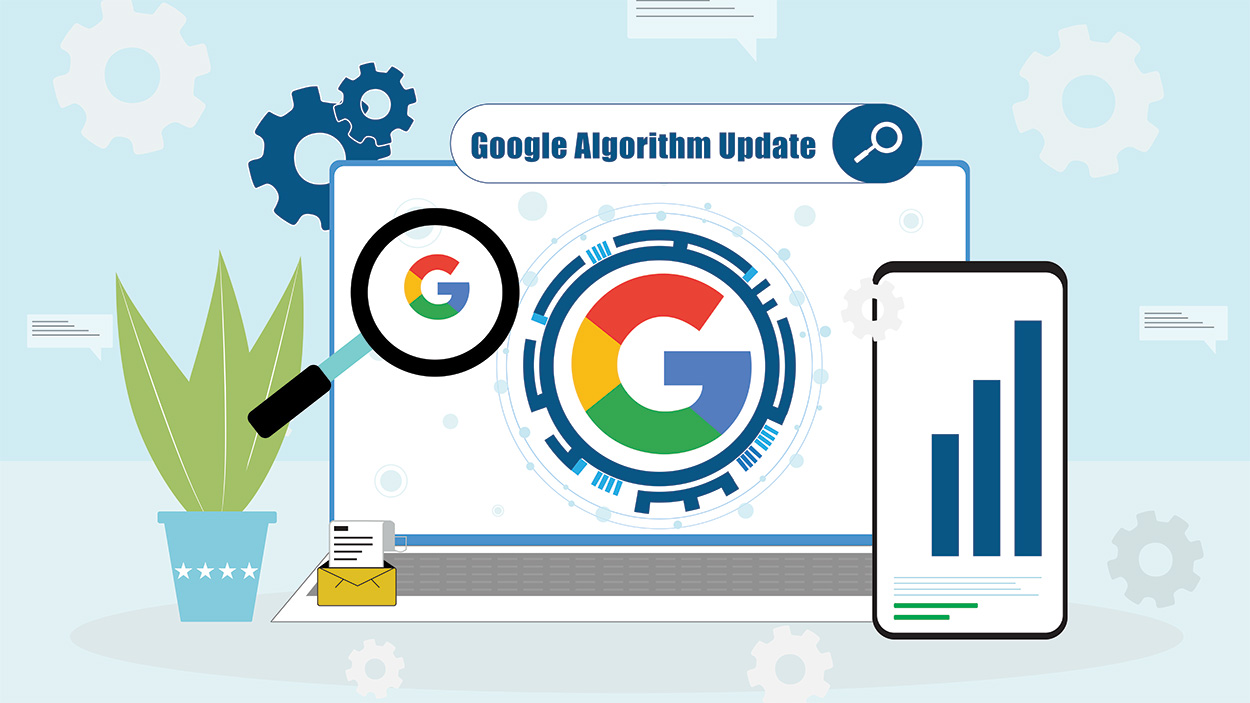Search engine optimization (SEO) is as vast as it is misunderstood. It’s one of the most essential concepts driving digital marketing today and a must-know for marketers who want to see their business succeed online.
If you’ve spent as much time as we have researching the ins and outs of SEO, you’ve probably realized that algorithms change often, and the strategies that work for you one day can become almost meaningless the next. It’s enough to drive even the most level-headed of marketing pros up the wall.
Still, some things never change when it comes to SEO, and those are the things we’re here to discuss. Because while you can never predict where SEO is heading, you can make sure you’re an expert on the basics. On this page, you’ll get an explainer on everything from why you need to care about SEO to why your SEO efforts might not be working. Let’s get started.
What is SEO?
Search engine optimization, or SEO, is the act of improving your web content to be more favorable in the eyes of both readers and search engines.
Your SEO strategy is the backbone of your digital presence – it’s what brings traffic to your page. Alternately, it can be what keeps traffic away. But as you’re probably well aware of by now, the nuances of your SEO success or failure are complicated.
Why Does SEO Matter?
Consider this:
- Up to 90% of all internet traffic comes through search engines (HubSpot).
- Over 70% of search traffic comes from organic internet searches, compared to just 30% from paid advertising (MarTech).
- Generating traffic and leads is a #1 concern of companies, with 66% of marketers noting that improving SEO and growing their organic presence is a top inbound marketing priority (HubSpot).
Why is SEO important for you? The short answer is that prospective customers don’t stand a chance of finding you on the massive cavern that is the internet without it. If you’re a business, your customers would have to know your URL and browse directly to your website to get in touch with you or make a purchase.
Search engines act as gatekeepers to the broad expanse of the internet, helping people find what they’re researching. And while they’re smart, they’re not nearly as smart as we want them to be. As a result, you have to optimize your web content to help Google, Bing, and other search engines fill in the blanks. You have to construct content carefully that appeals not just to your readers, but to the gatekeepers that bring these internet users to you.
In other words, you have to do SEO.
In an interview, Andrey Lipattsev, Search Quality Senior Strategist at Google, confirmed that content and link-building are two of the most important factors that Google uses to decide where it ranks your site on a search results page. And when it comes to those factors, the quality far outweighs quantity.
But SEO is not just about optimizing the content and the links that live right on your page. SEO is about your digital presence – not only your website. Pay attention to everything that factors in, which includes:
- On-site SEO: The content and links on your site.
- Off-site SEO: The content and links on other sites that lead back to your site.
- On-SERP SEO: Content related to your page that lives on the search engine results page itself.
Most brands know what SEO is. Many of them have been taking – and continue to take – significant steps to ensure that they don’t get lost somewhere below the first five search results (or worse, below the first page!). These efforts’ goals are varied, but ultimately, SEO helps you achieve one of your site’s primary objectives: it brings more traffic there. And if you’re one of the hundreds of thousands of companies competing for eyes on the web, you definitely know how crucial that is.
How to Achieve SEO Success
By this point, you may be a bit discouraged. We get it: SEO is a bit complex, and you may feel like you’re at a disadvantage if you don’t have the experts, money, or time to put into a comprehensive SEO strategy.
But don’t despair! The steps that will take you to inevitable SEO success aren’t relegated to just the top performers or the brands with the most money to spare. Even as the algorithms change (it’s estimated that Google updates its search algorithm a mind-boggling 500 to 600 times a year), the pillars that define SEO success stay the same.
There are seven unique areas you need to pay attention to when optimizing your content for search engines:
Keyword research: The foundation of your SEO strategy. What are the keywords and phrases that will drive people to your site? Identify the main topics your site is about, and then build content around these topics using related keywords.
Competitive analysis: You don’t have to do better than everyone, just the brands you’re directly competing against. What are your competitors in the top search engine spots doing right? What are your competitors at the bottom doing wrong? If you can deliver something a little more helpful, interesting, or inspiring than your competitors, you’ll be rewarded with a boost in page rank.
Website optimization: It’s not just your blog that demands your SEO attention. Any landing pages, microsites, content pages, and other digital content should be optimized, too. Include alt text and image captions, update your terms and conditions (GDPR compliance is a must), and include your business’s contact info. Keep your content mobile-friendly, and factor in the health of your website, too. Excessive redirects, broken links, navigation problems, horizontal scrolling, or other errors can cause search engines to penalize you.
Address domain authority: Forget your content for a second and think of how well your website itself performs. Do you have enough links from other sites with high domain authority? How can you get more? The reverse is also a consideration: if spammy sites are linking to yours, Google will likely assume your site isn’t trustworthy, either.
Content strategy: It’s today’s mantra for a reason: content is king. Is your content interesting, informative, well-written, and well-designed? Do you use keywords correctly? If others share your content and link to it, this is a good indication that you’re on the right track.
Social media strategy: Search engines are starting to pay more attention to your social platforms. Are they being used to promote your content? Are you getting good engagement?
Measure, report, improve: SEO isn’t a one-and-done kind of deal. Are you regularly auditing your site to ensure it’s optimized? What areas are you doing well in, and where are you falling behind?
Building a comprehensive SEO strategy requires going through each of the above steps to identify your strengths, weaknesses, benchmarks, and barriers. Make sure you’re doing all of it with a context in mind. For example, SEO must-dos for local businesses will vary slightly from the must-dos that apply to online-only companies or businesses without websites (yes, they exist, even in 2020).
Another critical piece of context that merits some extra detail: desktop versus mobile. Search behaviors on mobile devices differ from search behaviors on desktops. Optimize your brand’s content for mobile – if you don’t, you’re missing out on critical connections with the 2.71 billion smartphone users worldwide.
SEO Mistakes to Avoid
Now that we’ve gone over what you have to do to make your SEO efforts successful, let’s switch gears and look at what you shouldn’t do. Here are the most significant SEO mistakes you need to watch out for.
Mistake #1: You misunderstand key SEO terms. SERPs. Click rates. Backlinks. There are many terms within SEO that you probably haven’t encountered before, and it can feel like an entirely new language when you’re first getting started. Make sure you’re up-to-date on the meanings behind commonly misunderstand SEO concepts so that you’re not accidentally shooting your SEO in the foot.
Mistake #2: Your keyword research is off. Not all keywords are created equally. Even within one topic, specific keywords are going to rank better than others. Your mistake may be that you’re not going with the keywords that rank best for your particular geographic location, or you’re ignoring easy-to-rank-for keywords with low search volumes. If your keywords aren’t working for you, it may be because you have the wrong ones.
Mistake #3: You’re focusing only on the content or only on link building. Both of these factors play heavily into your overall SEO success, but you’re doing yourself a big disservice if you put all your energy into one other’s detriment. Weigh these relatively equally and don’t let either slip by the wayside.
Mistake #4: You’re trying to scam the system. Even if you don’t mean to, you may be using low-quality SEO tactics that hurt your site’s reputation with search engines. Things like keyword stuffing, link farming, and duplicating content will hurt you way more than they help you.
Mistake #5: You’re ignoring something key. Doing a lot of things right won’t make up for missing the essentials. In addition to optimizing content and links, you need to do things like making sure your website is crawlable and mobile-friendly. Look into optimizing your meta-data, and keep up to date on Google’s algorithmic changes (something we refer to here at WSI as AdaptiveSEO).
When it comes to SEO, middle-of-the-road isn’t good enough. You’ve got to be at the top, and to get there, you must have a strategy that encompasses all of the must-dos and must-not-dos that define good SEO. Once you’ve got a good game plan, tweak it as necessary to adapt to the ever-changing SEO landscape. If you do, you should see more traffic, more conversions, and ultimately, more success online.





